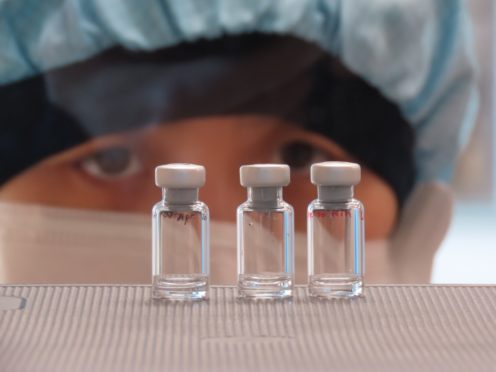
A fifth of disabled people say they will not leave home until a vaccine for coronavirus is developed, amid fears over the lifting of shielding measures.
Half of disabled people feel anxious about shielding advice being paused on August 1, research by the disability charity Scope suggests.
Just 5% disabled people said they will feel safe when this happens, and 30% said they will not leave home when lockdown ends.
One in five said they will not go out until a treatment is available, which would typically take years to develop.
The charity surveyed 1,115 adults with a health problem or disability in the UK between July 8 and 10.
It has written to Prime Minister Boris Johnson, calling for him to prioritise the needs of disabled people, 59% of whom are worried about being forgotten by the Government.
The letter, signed by 27 groups and campaigners including the author and comedian Ben Elton, reads: “Months of feeling forgotten is taking its toll.
“Disabled people and their families have disproportionately faced loneliness and worsening mental health.
“Shielding may be pausing, but for millions of disabled people there is no pause button on their anxieties.”
The groups want the Government to factor disabled people’s needs into every change as lockdown is eased, to ensure they are not “locked out of society” as the UK recovers.
Natasha Coates, who has mast cell activation syndrome and autism, said she feels like her life is in limbo.
The pandemic has exacerbated the feeling that disabled people are less important members of society, she added.
The 25-year-old from Nottingham said: “Some people are starting to get a bit of normality back in their lives, but those of us shielding are still in the exact same situation we were at the beginning of lockdown.
“I had to be careful going outside before the Coronavirus took hold, but I did manage to get out of the house. Now, I definitely won’t be going anywhere for the foreseeable future.
“The cases are still there, it’s not like it’s gone. I don’t see how it’s suddenly going to be safer. The easing of lockdown was never going to be an easy situation but that’s exactly why we need clear and concise instructions to keep everyone safe.”
The survey also found that 41% of respondents think life will be worse for disabled people after the pandemic and a third think that disabled people are less likely to be treated equally.
Mark Hodgkinson, Scope chief executive, said: “Scope’s findings reveal that many disabled people are worried about life after lockdown.
“Shielding may be set to pause, but for millions of disabled people at greater risk of coronavirus their fears have not been taken into account and they feel overlooked.”
Of the deaths involving coronavirus in England and Wales between March 2 and May 15, 59% were of people with whose daily lives were limited a lot or a little by a disability, according to the Office for National Statistics.

Enjoy the convenience of having The Sunday Post delivered as a digital ePaper straight to your smartphone, tablet or computer.
Subscribe for only £5.49 a month and enjoy all the benefits of the printed paper as a digital replica.
Subscribe